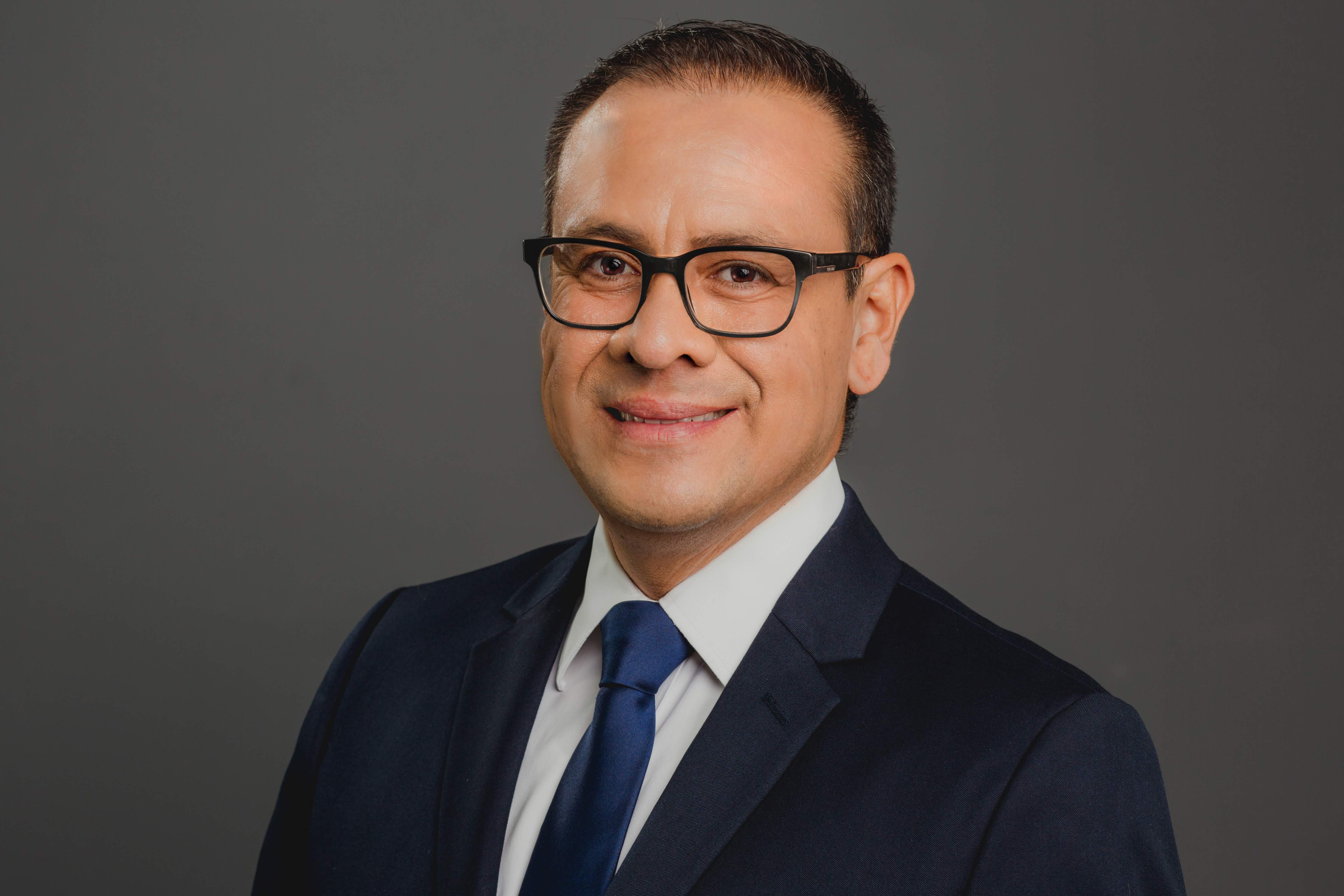Veteran journalists to lead enhanced regional health news at Cronkite School

An award-winning national editor for the Associated Press and a five-time Emmy Award-winning journalist are joining a Walter Cronkite School of Journalism and Mass Communication effort to provide quality health news for underserved residents across the Southwest and to create a new cadre of health care journalists.
A national search landed Pauline Arrillaga and Julio Cisneros, who will join the Robert Wood Johnson Foundation-funded Southwest Health Reporting Initiative at Arizona State University. They will lead a team of students at Cronkite News who cover health care issues with a particular focus on Latino and Native American communities.
Arrillaga, who will direct the initiative, is a 27-year AP veteran who since 2014 has overseen enterprise journalism in the United States. Cisneros, who will be a professor in health news, brings 23 years of experience as a reporter, director and editor at Spanish-language television, radio and digital outlets, including Telemundo and Univision.
“Pauline and Julio bring elite journalism skills, impressive backgrounds, and deep connections in the community to the Cronkite School,” said Dean Christopher Callahan. “Through the generous support of the Robert Wood Johnson Foundation, they will help our students tackle health care issues across the Southwest head-on. The students who complete the program will be prepared to cover these complex issues with depth, nuance and accuracy as they enter the profession.”
As the AP’s U.S. enterprise editor, Arrillaga helped shape and edit coverage examining the effects of President Donald Trump’s immigration policies on children and families — work named a finalist this year for the Pulitzer Prize in national reporting and winner of an RFK Journalism Award and also the John Seigenthaler Prize for Courage in Reporting. She also oversaw the AP’s series last year on missing and murdered Native American women, winner of the Dori J. Maynard Award for Justice in Journalism, the Les Payne Award for Coverage on Communities of Color, and other honors.
Pauline Arrillaga
“I can think of no higher calling than working to help mentor and guide the next generation of journalists, and this particular initiative is critical,” Arrillaga said. “Thanks to the Robert Wood Johnson Foundation and the vision of those at the Cronkite School, we have the opportunity to report on a vital topic in communities too often overlooked by policymakers and the public. We hope not only to bring attention to health concerns in these communities but to make a real difference by engaging leaders who can bring about change.”
Arrillaga joined the AP as an intern in 1992 in Dallas. She later covered state politics in Austin, the space program and prison system in Houston, served as a desk supervisor in Dallas, and was the company’s correspondent on the Texas-Mexico border, writing about immigration and the growing influence of Hispanics in America.
She later was named Southwest regional writer in Phoenix, and she was promoted to the coveted role of national writer in 2002, specializing in long-form narratives and covering major news events from presidential elections to the attack on Arizona Rep. Gabrielle Giffords. Her stories have captured numerous accolades, including a 2005 Livingston Award for “Doors to Death,” an investigative series examining human smuggling across the border. As both a writer and editor, Arrillaga has long focused on issues affecting Latinos and Native Americans and has reported from Native American communities across the West.
Julio Cisneros
Cisneros, the five-time Emmy Award winner, spent eight years with Telemundo Arizona in various roles, including news director, web editor and reporter. He has served as a coach and trainer at Telemundo, working with staff members on the development and production of multimedia stories.
“I am very happy and excited to be part of the Cronkite News team,” Cisneros said. “Having the opportunity to leave a legacy to journalism students, particularly in the area of health reporting, has always been one of my goals in life. Cronkite is a unique place to work because it offers the best of journalism and shows students the real world, the one they will encounter when they begin working in their profession.”
Cisneros previously was director of digital production for Entravision Communications in Phoenix, where he developed and managed video content and produced news stories for on-air and digital platforms. He also spent 13 years at KUVR (later KREN) Univision in Reno, Nevada, where he helped launch Noticias Univision Reno, Reno’s first Spanish-language newscast. While there, he anchored the 6 p.m. and 11 p.m. news and reported regional stories for a national news magazine program. He was named Journalist of the Year in Nevada by the U.S. Small Business Administration in 2003.
Early in his career, he earned a certification as an elementary school teacher in Jalapa, Guatemala, and earned a bachelor’s degree in communications science from the Universidad de San Carlos in Guatemala. He is the author of a memoir and a novel, both in Spanish.
The Cronkite School received a $500,000 grant to establish the Southwest Health Reporting Initiative to provide timely and accurate health news and information. Cronkite News, the student-produced, faculty-led news division of Arizona PBS, serves as the hub for the initiative. With news bureaus in Phoenix, Los Angeles and Washington, a Spanish-language news operation and partnerships with leading media organizations, Cronkite News students will produce multimedia content on health-related topics and issues with a wide reach.
Arrillaga and Cisneros will provide editorial leadership and guidance to the students and engage with policymakers and health care professionals to generate awareness of the content produced. The Southwest Health Reporting Initiative will target Arizona, Nevada, New Mexico, Southern California and Texas, with a particular emphasis on Latino, Native American and Spanish-speaking border communities.
The Robert Wood Johnson Foundation is a strong supporter of ASU health-related initiatives. The Foundation sponsored research at ASU’s College of Health Solutions examining the spending of tax dollars on public health systems. ASU’s Sandra Day O’Connor College of Law received funding to support its Center for Public Health Law and Policy, and the foundation has awarded numerous grants to faculty across the university to conduct health-related research.
More Law, journalism and politics

ASU committed to advancing free speech
A core pillar of democracy and our concept as a nation has always been freedom — that includes freedom of speech. But what does…

ASU experts share insights on gender equality across the globe
International Women’s Day has its roots in the American labor movement. In 1908, 15,000 women in New York City marched to protest…

ASU Law to offer its JD part time and online, addressing critical legal shortages and public service
The Sandra Day O’Connor College of Law at Arizona State University, ranked 15th among the nation’s top public law schools,…



